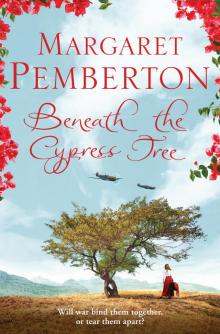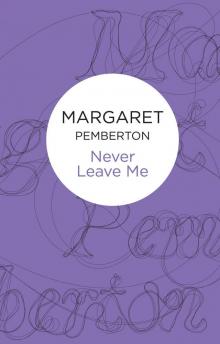- Home
- Margaret Pemberton
White Christmas in Saigon
White Christmas in Saigon Read online
Bello:
hidden talent rediscovered
Bello is a digital only imprint of Pan Macmillan, established to breathe life into previously published classic books.
At Bello we believe in the timeless power of the imagination, of good story, narrative and entertainment and we want to use digital technology to ensure that many more readers can enjoy these books into the future.
We publish in ebook and Print on Demand formats to bring these wonderful books to new audiences.
About Bello:
www.panmacmillan.com/bello
Sign up to our newsletter to hear about new releases events and competitions:
www.panmacmillan.com/bellonews
Contents
Margaret Pemberton
Epigraph
Prologue
Chapter One
Chapter Two
Chapter Three
Chapter Four
Chapter Five
Chapter Six
Chapter Seven
Chapter Eight
Chapter Nine
Chapter Ten
Chapter Eleven
Chapter Twelve
Chapter Thirteen
Chapter Fourteen
Chapter Fifteen
Chapter Sixteen
Chapter Seventeen
Chapter Eighteen
Chapter Nineteen
Chapter Twenty
Chapter Twenty-one
Chapter Twenty-two
Chapter Twenty-three
Chapter Twenty-four
Chapter Twenty-five
Chapter Twenty-six
Chapter Twenty-seven
Chapter Twenty-eight
Chapter Twenty-nine
Chapter Thirty
Chapter Thirty-one
Chapter Thirty-two
Chapter Thirty-three
Chapter Thirty-four
Chapter Thirty-five
Chapter Thirty-six
Chapter Thirty-seven
Chapter Thirty-eight
Epilogue
Margaret Pemberton
White Christmas in Saigon
Margaret Pemberton
Margaret Pemberton is the bestselling author of over thirty novels in many different genres, some of which are contemporary in setting and some historical.
She has served as Chairman of the Romantic Novelists’ Association and has three times served as a committee member of the Crime Writers’Association. Born in Bradford, she is married to a Londoner, has five children and two dogs and lives in Whitstable, Kent. Apart from writing, her passions are tango, travel, English history and the English countryside.
Epigraph
One watches things that make one sick at heart.
This is the law: no gain without a loss,
And heaven hurts fair women for sheer spite.
Nguyen Du
(1765-1820)
Prologue
The day was cold, the sky leaden, full of the sombreness of November. The three women had arrived in Washington separately, on different days during the preceding week. Now they stood, arms linked, on the corner of 7th Street and Constitution Avenue, about to march in one of the most moving and unorthodox parades the city had ever seen.
‘Who is up front?’ Gabrielle Ryan shouted in a heavy French accent to her companions. All around them people were greeting one another and calling out, struggling to be heard above the deafening sound of a military band gustily playing The Girl I Left Behind Me.
‘General Westmoreland!’ Abbra Ellis shouted back, glossy black hair skimming her shoulders, her cherry-red wool coat glowing like a jewel in the dull afternoon light.
‘You bet he is!’ an army veteran in faded fatigues and a boonie hat responded as he squeezed past them. ‘The President sure as hell isn’t!’
‘Is that true?’ Serena Anderson’s voice was disbelieving. ‘Isn’t the President leading the procession?’
Abbra shook her head. ‘No,’ she said, her eyes dark. ‘None of those who should be here are here. Not the Vice President, not the Secretary of State, not Richard Nixon, not Henry Kissinger. Only Westmoreland.’ She slipped her hand into Serena’s and gave it a tight squeeze. ‘Nothing really changes, Serena. You should know that.’
Serena, tall and elegant and stunningly beautiful, nodded. Twenty-four hours earlier she had been working with the refugees in the Nong Samet refugee camp in Hong Kong. Now here she was in Washington again and, as Abbra had said, despite the parade and the reason for it, nothing had really changed. Not where it mattered. Not on Capitol Hill.
‘We’re moving!’ Gabrielle cried as the crowd around them began to edge forward into the avenue and the strains of The Girl I Left Behind Me were replaced by a thunderous rendering of God Bless America.
‘This is it!’ a long-haired, bearded middle-aged man in jeans shouted exultantly. ‘Jesus Christ! I’ve waited nine years for this!’
A lump rose high in Abbra’s throat. She, too, had waited nine years. As they turned into the broad sweep of the avenue, she looked around her, laughter and tears vying for expression. She had been in many marches but never one as ragtag yet as splendid as this one.
General Westmoreland, silver-haired and wearing a trench coat, had led it off over two hours earlier, marching alongside a group of veterans from Alabama. Other veterans had followed, marching under the name of their state: New York, Montana, Maryland, Kansas. Some men wore battle fatigues. Some were resplendent in full dress uniform. Some marched, some walked, some hobbled with the aid of canes. Others pushed themselves along in wheelchairs, or were pushed by a buddy or a wife, a son or a daughter.
As the contingent from each state passed, the crowd lining the pavements called out its name and clapped and cheered. The last state represented in the parade was Wyoming; Abbra and Serena and Gabrielle marched along in the centre of the crowd following the delegation, and Abbra felt tears sting her cheeks. The men around her had been too busy reuniting to have marched off under the name of their state. Some sported flags; others carried bottles of beer; many walked, arms around each other’s shoulders, some laughed exuberantly, cracking jokes with their companions; others wept. They had come together to remember their shared past and to honour their dead, and the occasion had turned into an emotional homecoming that had been long denied them.
The three women walked among the men, their arms linked, feeling natural. On this day, 13 November, 1982, they belonged in the parade, just as the men around them belonged. They, too, had paid their dues. Abbra, in the centre, hugged her friends’ arms, looking first at Serena and then at Gabrielle.
Serena’s fragile-boned face was pale, her mouth set firm. Despite the bitter wind she wore no coat. She wore her grey flannel slacks, white cashmere turtleneck, and black velvet blazer with cool, understated English elegance. Her blonde hair was pulled away from her face, coiled in a loose knot at the nape of her neck, revealing clearly the thin white scar that ran from high on her temple to the corner of her left eye which marred her otherwise flawless beauty. Another woman might have cut her hair into bangs and a bob, disguising it. It was typical of Serena that she had done no such thing, wearing her hair as she had always worn it.
Gabrielle was typically fully protected against physical discomfort. Her snakeskin boots were high, teeteringly heeled to compensate for her diminutive height. A pale champagne suede coat was belted at her waist, a huge lynx collar soft against her face, a matching hat tilted rakishly on top of impossibly red hair. Looking across at her, Abbra could see that tears were glittering on her lashes. She hugged her friend’s arm tighter and Gabrielle turned towards her, flashing her a dazzling smile, saying, ‘It is all right, chérie. I was remembering. Tha
t is all.’
They were reaching the long end of the avenue. To the left of them was the Lincoln Memorial; a little farther away was the Jefferson Memorial. And now, as they crowded down on to a leafy, two-acre site, the memorial they had honoured with their parade, and which was to be dedicated, came into view.
Abbra caught her breath. This was why the three of them had returned to Washington. She from San Francisco; Gabrielle from Paris; Serena from Hong Kong. The memorial, two huge, tapering walls of shiny black granite forming a wide V and bearing 57,939 names, was simple and elegant and dignified, everything that the war in which the men had died was not. For the memorial had been erected by veterans of one of the ugliest wars that had ever taken place. The war in Vietnam.
Al Keller, national commander of the American Legion, addressed the packed throng stretching far back along Constitution Avenue. ‘Today we dedicate a memorial to a generation of Americans who fought a lonely battle,’ he began ringingly.
Abbra’s eyes were not on him but on the wall. The names had been engraved in chronological order of death, beginning with army major Dale R. Buis, who had been killed on 8 July, 1959, and culminating with air force second lieutenant Richard Vane Geer, who had died on 15 May, 1975. So many names, so much heartbreak.
The crowd was packed with women, many, like herself, in their late thirties, teenage children alongside them. Others were much older, their faces harrowed with lines of grief and loss, their husbands at their sides, their mouths grim as they surveyed the huge black wall bearing the names of their sons.
Curtis Richard, Titus Epps, Dan Stuber, Richard H. Davies.
Abbra’s throat tightened as she looked at them, remembering the other marches that had taken place in Washington, the demonstrations and speeches protesting the very death of the men now immortalized.
Glenn Rethington, Richard Salmond, Robert G. Drapp
She remembered the doors of the Justice Department being barricaded against them, the injured who had lain helplessly on the ground as the police had broken up the demonstrations with water from hoses and with tear gas; and she remembered the singing and the chanting and the folk songs.
Gerald Aadland, Craig Reska, Perry Mitchell
Thirteen years before to the month, at the antiwar March Against Death, the demonstrators had recited, one at a time, the names of the 40,000 Americans who had been killed up to then. The past Wednesday morning, in a chapel at Washington’s National Cathedral, the bleak recitation had begun again, and she had been one of those taking part. It had been almost more than she could bear.
A letter from the Secretary of Defense, Caspar Weinberger, was read; Wayne Newton sang; General Westmoreland spoke. The cold stung their cheeks and she felt Serena shiver.
‘We are here to remember the suffering and endurance of those who fought in Southeast Asia …’
Abbra slipped her hands into Serena’s and Gabrielle’s.
‘We suffered, and we endured as well,’ she said passionately, her eyes fiercely bright, and all of a sudden it was as if she had finally reached the end of a long, lonely journey. ‘Hell! We did more than that!’ She was filled with overwhelming emotion. ‘We survived, goddammit! We survived!’
Chapter One
‘But it’s going to be a perfectly respectable party, Mom,’ Abbra Daley protested, half amused and half exasperated by her mother’s low opinion of her friends and her social life. ‘Nearly everyone there will be from Stanford and—’
‘And the others?’ her mother interrupted crisply as she began to take heavy silver cutlery from a velvet-lined mahogany box. ‘The ones who will be there and who aren’t from your University? Will that offensive young man you are so obsessed with be there?’
Abbra pushed a fall of silky shoulder-length hair away from her face. ‘No,’ she said, her eyes clouding slightly, her amusement waning. ‘He won’t be there.’
Her mother put the silver she had selected to one side and closed the box. ‘How can you be so sure? Beatniks don’t have to be invited to a party to attend it, do they? They just turn up and make a nuisance of themselves.’
‘Jerry is in New York,’ Abbra said briefly, keeping a tight rein on her impatience. ‘An underground newspaper there is interested in publishing some of his poems and—’
Her mother gave an unladylike snort. ‘Poems! Anything that young man writes will be gutter trash. How a girl of your upbringing can be so taken with such an unsavoury specimen I can’t begin to imagine. Nor do I understand why his kind finds it so necessary to flock like lemmings to San Francisco. Why can’t they stay in their hometowns?’
It wasn’t a question that she expected an answer to. She carried the silver across to the large dining table, smoothing an imaginary crease from the handmade lace tablecloth, every line of her body registering outrage.
‘Who is coming to dinner?’ Abbra asked, realizing that the subject had to be turned away from Jerry. And quickly.
‘Tom Ellis is visiting from New York. His son is going to be here as well. And the Parkers.’
Abbra tried to look interested, but it was difficult. Colonel Tom Ellis was an old family friend with a distinguished war record not only in the Second World War but in Korea as well. His conversation – all his conversation, Abbra recalled – centred around things military. His wife had been her mother’s childhood friend, and though she had died tragically of cancer shortly after her younger son’s birth, the friendship between her parents and the colonel had continued.
‘Which son?’ she asked, taking a handful of silver and beginning to lay it.
‘Older one of course!’ her mother said, her tone of voice indicating that the fact should have been self-evident. ‘I would hardly invite a football player as a dinner guest, would I? The Parkers would think I had taken leave of my senses!’
Sam Parker was an eminent neurologist, as was Abbra’s father.
‘What’s so socially acceptable about the older son’s career?’ Abbra asked, amusement at her mother’s snobbishness restoring her good humour.
‘Lewis is an army officer.’ Her mother examined a silver candelabrum carefully to make sure that the maid had cleaned it to her satisfaction. ‘West Point. Surely you remember that your father and I attended his graduation?’
Abbra shook her head. She had met the colonel on numerous occasions but had only a shadowy recollection of seeing Lewis when she was eight or nine. He had been a teenager in an army cadet uniform, and because she had expected someone her own age she had been intensely disappointed, and too shy to exchange more than half a dozen words with him.
‘Tell me about the younger brother,’ she said as her mother handed her a clean cloth with which to polish already sparkling wineglasses. ‘Is he really a football player?’
Her mother nodded, stepping back from the immaculately laid table and regarding it critically. ‘Unfortunately, yes. He’s causing his father a great deal of anxiety. If you’re here when Tom arrives, I would appreciate it if you wouldn’t mention Scott’s name.’
Abbra didn’t have the slightest intention of being there when the dinner guests arrived. She said again, as she had at the beginning of the conversation, ‘Since my car is being serviced, can I borrow yours to go to the party tonight? I promise I won’t be back too late.’
Her mother’s eyes held hers. ‘Do you promise that Jerry Littler will not be there?’
‘Mom, I’m eighteen for goodness’ sake!’ Abbra said, unable to hold back her impatience any longer. ‘This kind of cross-examination is ridiculous!’
‘No, it isn’t. If I had been more vigilant a few months ago, you would never have become acquainted with a beatnik. Now, for the last time. Will the person I am referring to be there?’
Abbra closed her eyes and prayed for strength. ‘No,’ she said when she could at last trust herself to speak. ‘I’ve told you. He’s in New York.’
‘Then you can borrow the car on one condition: Lewis picks you up at midnight.’
Abbra stared
at her incredulously. ‘You can’t mean that, Mom! It’s absurd! It’s, it’s—’ She struggled for a word that would do justice to it – ‘It’s humiliating.’
‘No, it isn’t.’ Having laid and decorated the dining table to her satisfaction, Mrs Daley now turned her attention towards the flower arrangements. Both were tasks that she never delegated. ‘It’s sensible,’ she continued, removing a Lalique vase from a display cabinet. ‘Lewis won’t mind, not in the least, and I’ll be able to enjoy the evening with an easy mind. Now, do you think I should use this vase for the roses, or would they look better in the Tiffany?’
Abbra drew in a deep, steadying breath. There were times when her mother’s overprotectiveness had to be challenged, but the present issue was too trivial to be one of them. It was also farcical.
‘The Tiffany,’ she said, her good humour returning.
Her mother caught the new inflection in her voice and looked across at her, a vase in either hand. ‘I don’t see what’s so funny,’ she said reprovingly. ‘You should be glad that you have parents who care about you.’
‘I am,’ Abbra said as contritely as her amusement would allow. She made a strategic retreat towards the door before adding mischievously, ‘But isn’t it just my bad luck that the never-do-anything-wrong older brother is your dinner guest this evening? Being picked up by the football-playing black sheep of the family would have been much more fun!’
The party was being held in a house high on Telegraph Hill. From the bare windows a thousand lights could be seen glittering along the Embarcadero and Fisherman’s Wharf.
‘Crowded as hell, isn’t it?’ a friend from her English class at Stanford shouted to Abbra.
Before she could answer, the music changed from the Beach Boys to the Supremes. Abbra merely nodded. It was so crowded it was almost impossible to move. Her cornflower-blue mini-skirt was twisted and riding too high on her thighs. Her shining black hair held away from her face with two heavy tortoiseshell combs was damp with perspiration. ‘I hardly know anyone,’ she shouted to her friend.

 The Summer Queen
The Summer Queen Moonflower Madness
Moonflower Madness The Londoners
The Londoners The Flower Garden
The Flower Garden Yorkshire Rose
Yorkshire Rose Vengeance in the Sun
Vengeance in the Sun Zadruga
Zadruga Beneath the Cypress Tree
Beneath the Cypress Tree Magnolia Square
Magnolia Square Party in Peking
Party in Peking Lion of Languedoc
Lion of Languedoc Forget-Me-Not Bride
Forget-Me-Not Bride The Guilty Secret
The Guilty Secret Rendezvous With Danger
Rendezvous With Danger A Season of Secrets
A Season of Secrets Silver Shadows, Golden Dreams
Silver Shadows, Golden Dreams The Four of Us
The Four of Us Devil's Palace
Devil's Palace Never Leave Me
Never Leave Me An Embarrassment of Riches
An Embarrassment of Riches African Enchantment
African Enchantment White Christmas in Saigon
White Christmas in Saigon Coronation Summer
Coronation Summer A Multitude of Sins
A Multitude of Sins Tapestry of Fear
Tapestry of Fear A Many-Splendoured Thing
A Many-Splendoured Thing